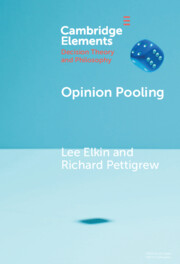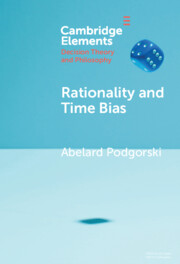Ever since the first theories of rational decision making were developed in the 17th century, decision theorists have attempted to answer the following question: What should a rational agent confronted with a set of alternative actions do, given the limited and sometimes unreliable information available to her?
The Cambridge Elements in Decision Theory and Philosophy offers accessible discussions of central topics in decision and game theory written by leading experts in the field. Each volume begins with a nontechnical introduction written for readers with limited knowledge of the topic and gradually proceeds with more advanced material. The Elements series in Decision Theory and Philosophy will help readers to improve their understanding of rational decision making by clarifying concepts such as risk aversion, coalition formation, imprecise credences, Bayesianism, the Dutch Book argument, causal decision theory, judgement aggregation, fat tails, the independence axiom, and other related concepts.



